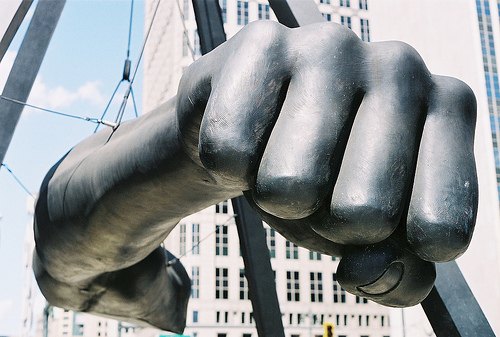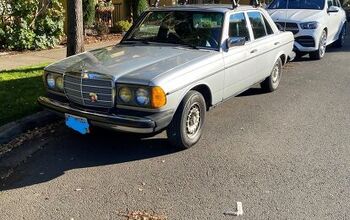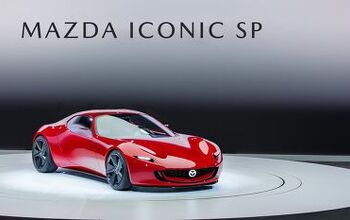Chrysler Sues Over "Imported From Detroit" T-Shirts & They'll Probably Win Too

Now and then a story comes along that’s right in a writer’s wheelhouse. Yesterday, Chrysler filed a lawsuit in US District Court alleging that Pure Detroit, a small chain of gift shops specializing in Motor City memorabilia, was infringing on their trademark “Imported From Detroit” tagline, popularized in Chrysler’s Super Bowl ad starring rapper Eminem. Pure Detroit started selling their version of the shirts on Feb. 7th, the day after the Super Bowl, followed by Chrysler’s own shirts a few days later, which sold out in short order. Chrysler is donating the profits from those sales to Detroit area charities, and the company says that it tried to work out a similar arrangement with Pure Detroit. Pure Detroit did agree to stop online sales, but they continued to sell the shirts in their retail stores, resulting in the lawsuit. Courts have been pretty consistent that owners of intellectual property have to diligently defend it. According to a leading intellectual property attorney, in this case the courts should side with the Auburn Hills automaker, not the small stores in downtown Detroit.
This story has some personal resonance. In real life, I run a one-man embroidery shop called Autothreads. Logo t-shirts are part of my business. When you do embroidery, you run into intellectual property issues all the time. I frequently get asked to reproduce logos and trademarks that I don’t have the legal right to sell. In addition, I hold trademarks on some names and phrases and hold copyrights to my original embroidery designs.
I’ve also been on the receiving end of a cease and desist letter from Chrysler’s licensing management company over an intellectual property matter. Chrysler claimed that the apparel that I sold with my original artwork of PT Cruisers violated their copyright to the car’s exterior design. That’s an example of how powerful and wealthy owners of IP will try to expand their IP rights beyond the letter of the law by trying to intimidate people who are not illegally infringing. They say they are only being duly diligent but the net result is a de facto enlargement of their property rights.
So, if anything, I have sympathies for Pure Detroit. So does Ron Coleman, who heads the intellectual property department at Goetz Fitzpatrick LLP, a law firm based in New York City. Coleman muses on the topic of IP at his witty and entertaining Likelihood Of Confusion blog, and he graciously gave TTAC a few minutes of his time.
Coleman agreed that owners of IP trying to assert rights they don’t legally have is a problem, particularly because it’s usually a David and Goliath story, and the Davids usually don’t know much about IP. They’ll typically cave rather than face the expense of litigation. Because the little guy often has the letter of the law on his or her side, Coleman’s inclination is to favor the defendants, but in this case he thinks Goliath is going to “roll over [Pure Detroit] like a steamroller.”
Not so much because Chrysler already filed a trademark application for use of “Imported From Detroit” on clothing in January, before Pure Detroit started using the phrase in commerce on apparel. Coleman is skeptical of such trademarks, calling them a misuse of the trademark process, because “Imported From Detroit” is not a trademark for clothes, it’s a trademark for cars. Chrysler doesn’t need those additional trademarks because it already owns the phrase.
Many trademarks hinge on the concept of secondary meaning. Anyone can talk the truth about cars ( unless you write for the Detroit News, apparently), but The Truth About Cars has established a secondary meaning to that phrase associated with TTAC’s business. Though Coleman has reservations about supplemental accessory trademarks for a phrase that already has secondary meaning, he believes that all of the secondary meaning of Imported From Detroit already “belongs to Chrysler”. “Chrysler has a pretty good case”, Coleman concluded.
Which brings up another question. Chrysler’s initial Imported From Detroit shirts used a graphic that was a stylized winged Chrysler logo. Since then, they’ve come up with a more in-your-face graphic that incorporates the the wings with an image of a fist, apparently modeled after the statue of boxing great Joe Lewis’ forearm in Detroit’s Hart Plaza. I do embroidery work for a number of motorcycle, car and social clubs. When the Cruel Intentions club asked me to design a logo with a white and and a black hand doing a fist bump, I used images of the Joe Lewis fist. Will Chrysler start claiming that the fist now has secondary meaning associated with Chrysler?

Ronnie Schreiber edits Cars In Depth, the original 3D car site.
More by Ronnie Schreiber
Latest Car Reviews
Read moreLatest Product Reviews
Read moreRecent Comments
- ToolGuy TG likes price reductions.
- ToolGuy I could go for a Mustang with a Subaru powertrain. (Maybe some additional ground clearance.)
- ToolGuy Does Tim Healey care about TTAC? 😉
- ToolGuy I am slashing my food budget by 1%.
- ToolGuy TG grows skeptical about his government protecting him from bad decisions.



































Comments
Join the conversation
As a very wise and very good trademark attorney once told me: "Bertel, I know you are right. You'll win this case. After you have paid me for 5 years ... if your business is still alive by then."
Thanks, Ronnie. I don't usually bother responding to anonymous losers on the Internet, and I've usually regretted it when I have. But you were nice enough to stick up for me so, by way of elucidation -- yes, I've written quite a bit about the idea that not every catchphrase is a trademark, such as here, here and here. My general take, in fact, is that slogans most aren't trademarks. The one in this story probably is one, though, even if it's not a very strong one. More significantly, the way the t-shirt company went about trying to use the phrase suggests that, unlike in the typical case I write about, they meant quite specifically to refer to the fame or secondary meaning developed by Chrysler in its commercial.